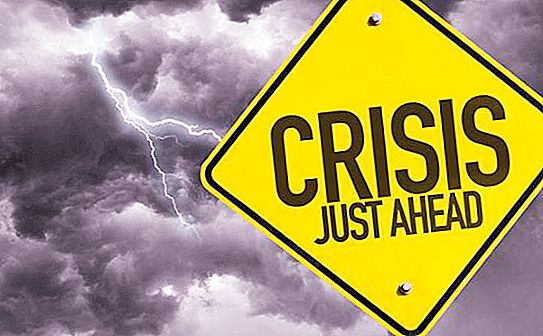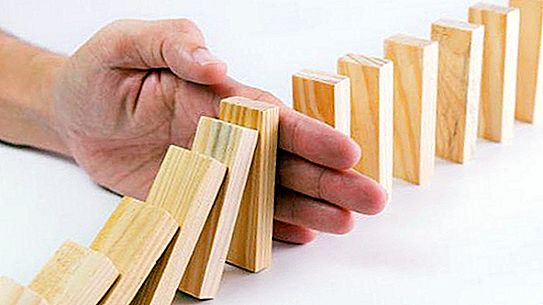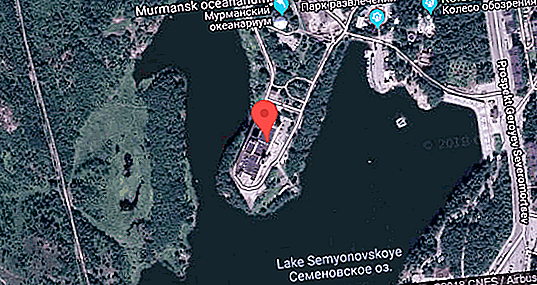Human needs are unlimited, which can not be said about the resources of our planet. Therefore, all technological progress is aimed at ensuring a decent standard of living for as many people as possible. However, long-term economic growth is not uniform. Periods of prosperity alternate with instability. A crisis is a state of imbalance in consumption and production on a public scale. Periods of instability are characterized by a deterioration in the standard of living of the population, but they are an integral part of economic development. In this article we will consider the nature, types, causes and ways out of crises.

Definition
Considering the meaning of the word "crisis", it is logical to start with the origin of the term. Translated from Greek - a turning point, decision, outcome. A crisis is any event that can lead to an unstable or dangerous situation that affects an individual, a group of people or a whole society. Negative changes often occur not in one area, but in several. It affects economics, politics, security, social relations, and even the environment.
Essence
There is no consensus among economists on what constitutes a crisis. This, of course, is a negative phenomenon, according to all scientists. But its causes and consequences vary, depending on the direction that we have chosen to study. In the USSR it was believed that a crisis was an integral attribute of an exclusively capitalist mode of production. But in a socialist society there can only be “difficulties of growth”. Some modern scholars believe that the concept of crisis applies exclusively to the macroeconomic level. This phenomenon is manifested in the overproduction of goods, which leads to massive bankruptcy of business entities, increased unemployment among the population and other socio-economic problems. Scientists see the crisis as a condition that cannot be overcome without fundamental internal and external changes.
Functions
Periodic crises are an integral attribute of development. They undoubtedly lead to a deterioration in the life of the population. Despite this, crises are progressive in nature. They perform the following main functions:
- Elimination of obsolete and exhausted elements of the dominant system that impede its further development.
- Contributing to the adoption of new rules.
- Strength testing of system elements and inheritance of only the most effective ones.
Considering what a crisis in the economy is, it is important to understand that this is a phenomenon, and not an instant event. First, you can observe the latent period of its development, when the prerequisites are just brewing. The national economy at this time is still characterized by stable development. At the second stage of the crisis, there is a rapid aggravation of existing socio-economic contradictions. On the third, prerequisites are created for overcoming the latter and the revival in the national economy begins.
Typology
A crisis is called an extreme aggravation of socio-economic contradictions. This phenomenon can cover the whole system as a whole or only part of it (individual areas). In the first case, it is a general crisis, and in the second, a local crisis. Also, this phenomenon is characterized by its problems. Depending on the scale of the latter, macro- and micro-crises are distinguished. This phenomenon is also classified by scope and causes. There are economic, social, psychological, technological and organizational crises. And for reasons of occurrence - environmental, social and natural.







